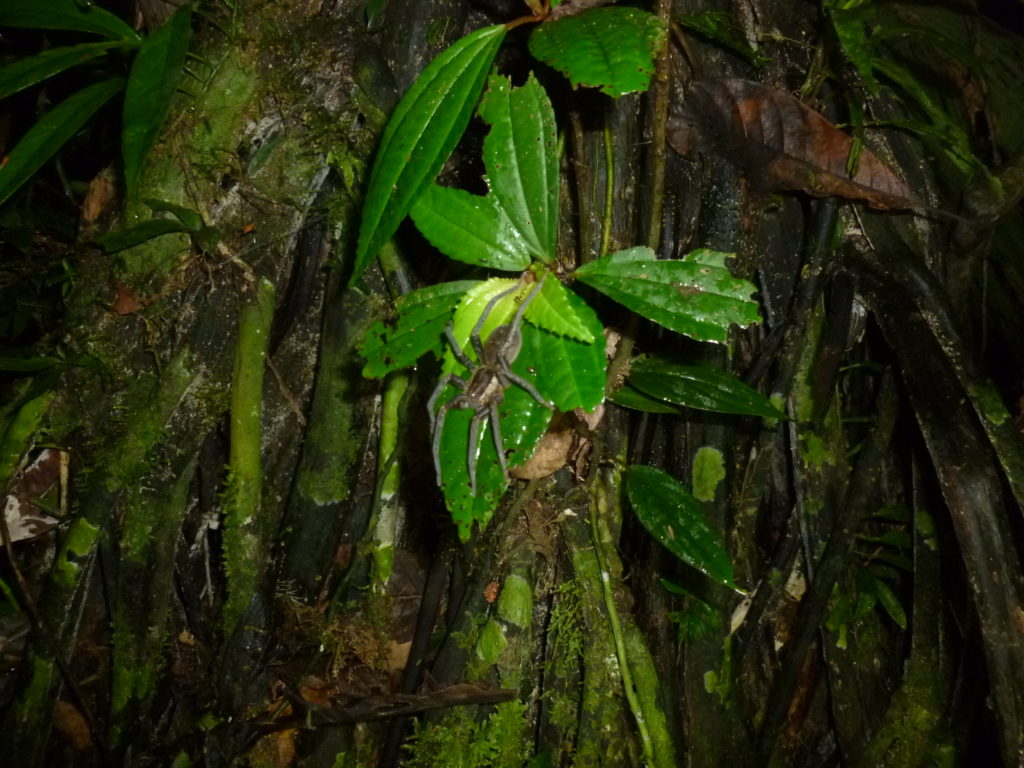I’ve heard a saying from a fish who was asked “How’s the water?” It responded, “What water?” It can be hard to understand the context we’re in until we remove ourselves from that context. Recently, I’ve been experiencing this with my conception of home. When I’m in Michigan, it’s hard to pick out what exactly feels like home. It’s just not something I need to evaluate in my daily life. But, being in Ecuador has led me to reflect on my understanding of my place-based identity. These reflections have been inspired, in part, by some very home-like experiences I’ve had recently. What’s funny is they happened in one of the places you’d least expect: the Amazon rainforest.

Yep, we’re off on adventures again! After returning from the Cloud Forest, we had one week in Quito before heading to the Amazon. As my host mom says “el tiempo vuela” (time flies!)
There are so many moments from the Amazon that I could write about: learning about the impacts of Petroleum and African Palm Oil, monkey-watching, taste-testing Amazonian fruits and medicinal plants. But for this post, I’m going to focus on just a few moments that, surprisingly, made me think of home.
On Sunday, we left the town of Limoncocha where we had stayed for the first two days, and headed down the Napo (a tributary of the Amazon River) to our next location.
The scenery couldn’t be more different from Holland, MI. We boarded our canoe on the shore of the open-air marketplace of the surrounding communities: a collection of semi-stable wooden structures and tarp-tents, underneath which was sold everything from plátano to pajamas. But, getting on the boat was one of the moments in the trip when I was hit with the strongest sensations of home.

For those who don’t know me as well, a little context. Water is a big part of the Kamper family. When my parents were newly married, they bought our boat from my grandparents, so for all my life that I can remember, summers have been filled with time on the lake. Every August we go up to Old Mission Peninsula where my grandparents live and spend time at our favorite beach, Hazerot, tubing, skiing, swimming, and soaking up as much summer as possible.
So, as soon as I heard the phrrr-rut-rut-rut of the motor starting up and smelled the gasoline over the water, I had a feeling of deja vu. The splashing of the water along the sides of the canoe as we cruised down the river, and the wind on my face, all brought back memories of being on the lake.
Before we got to our destination, we took a stop.

My immediate thought when I saw the lake was “Smooth. As. GLASS. My dad would love to ski here.”
We didn’t have any waterskis, but we did get to take a swim break! I was a very happy camper.

Throughout our time at the lake, I continued to be bombarded with sensations of home: the way that the top layer of the lake was warm, while it’s cool when you dive down, moving my legs in a frog-kick, sitting on the front of the boat and letting the warm sun dry my wet skin. Just being in water, even though it was in the Amazon, somehow made me feel like “Yes, this is where I belong.”

Throughout the rest of the trip, similar moments of unexpected familiarity popped up.

Walking through the flooded Amazon forest, I noticed how a bridge we crossed reminded me of wetland boardwalks at home.



An after-dark adventure made me think of night hikes at VanRaalte farm (although with significantly more tarantulas).


Digging a soil profile for a mini research project reminded me of working in the dirt at Eighth Day Farm this summer.

Glow worms out on Limoncocha Lagoon felt like fireflies on the 4th of July
Later, I questioned that “I belong here” feeling a bit more. Do I truly have a place where I “belong” more than another? How should I understand this place-based identity that I am becoming more aware of? My identity is a part of the family of God, which includes people from all places. There’s nowhere I could go where I couldn’t belong in that family and be a part of that story. I feel a little uncomfortable with seeing my sense of self so deeply connected to something so specific, and, in a way, fragile. I found myself wondering about the experiences of people who leave the land they call home, and never get to go back: immigrants, refugees, and those who have their land destroyed by war or natural disasters. Even with these experiences I have had, I still come nowhere close to being able to imagine the way they must miss their home and the pain that they feel when they get these kinds of unexpected reminders.
Is it better then, to not have an identity connected to place? I’m not sure. In our debriefing back in Quito this week, we talked about how many of the indigenous peoples of the Amazon are very passionate about conservation. My professor said that this is because their land is their culture. They see no separation between maintaining their way of life and protecting the forest. I realized that, although not to the same extent, this is also part of why I care about earth-keeping. I think that if I have an identity that motivates me to care about something God cares about, that’s at least in part a good thing.
Ecuador lesson #4: My identity, at a subconscious level, is connected to the physical place I call home.
It’s definitely something to keep thinking about. Good thing I still have over two months here 
Hasta luego!
-Megan
The post Home (…in the Amazon) appeared first on Off-Campus Study.
